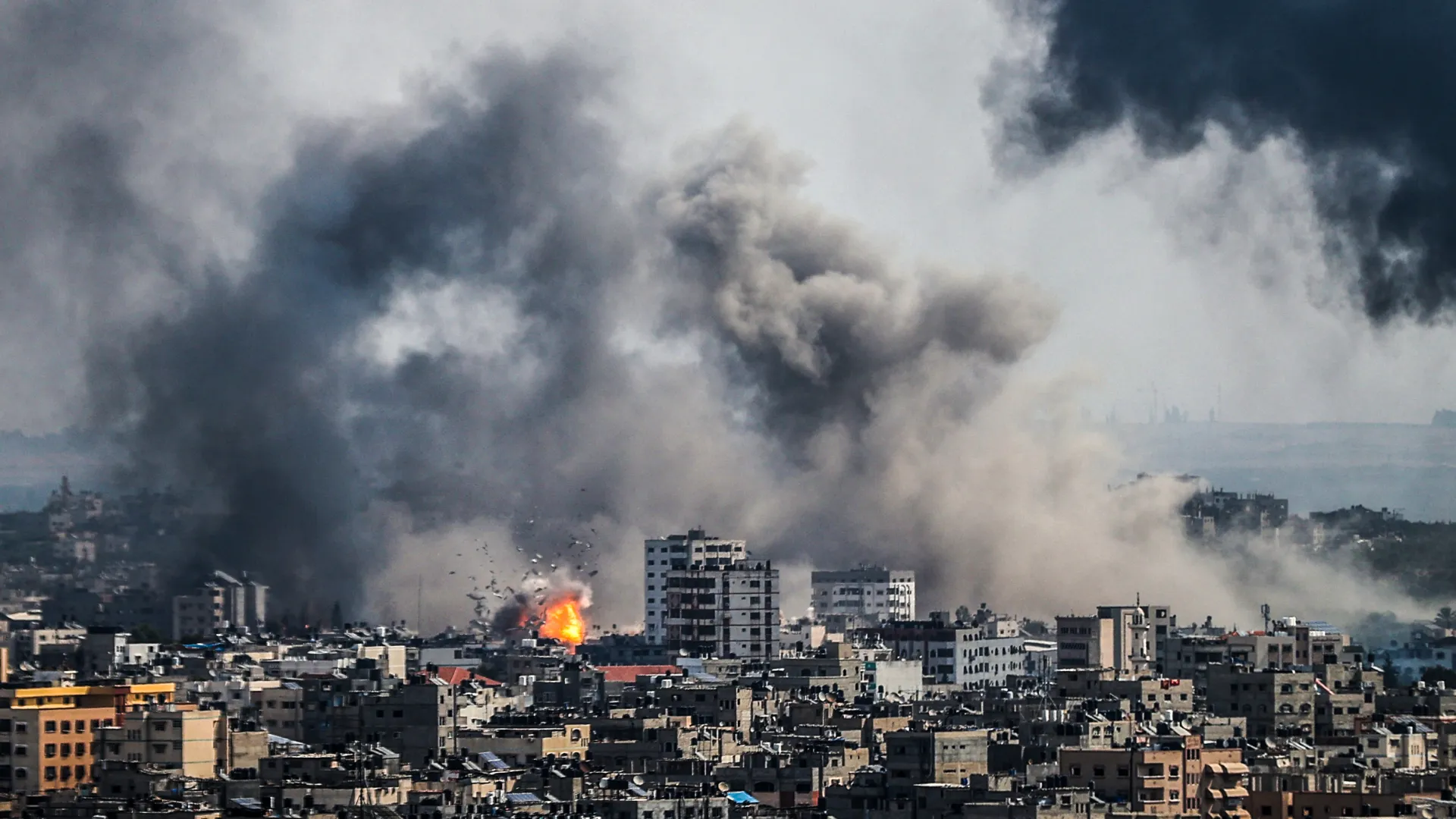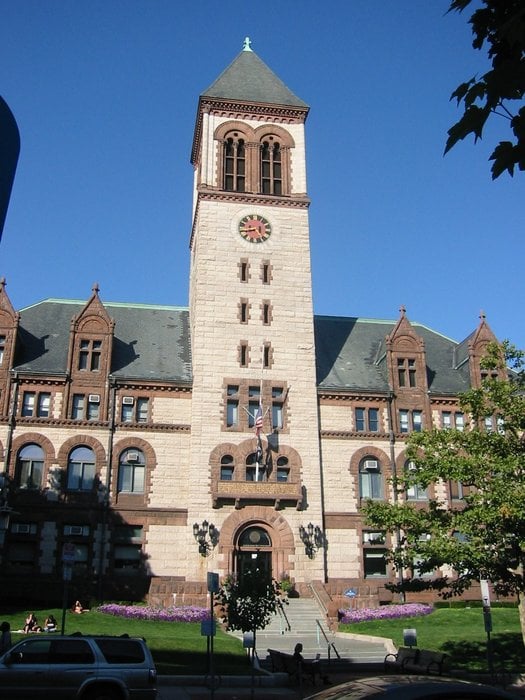by Lizzy K.
Observing court feels like watching a nightmare. One where the masterminds believe it necessary and just to patrol people day in and day out through a series of incomprehensibly bureaucratic chutes and ladders. This nightmare? It happens every day, in several thousand municipal buildings, to millions of people. And the people who are patrolled? They are marked by the state as criminals, as forsaken, as victims of their own actions.
When we don’t see them, when we only hear about them as such, we label them as “murderer,” “prostitute,” “felon,” “convict,” “addict,” “abuser.” The list goes on. Our state does an excellent job of littering such labels into our daily perception of those who are incarcerated. When we don’t see them, it is easy to forget that they are human. It is easy to blame them for their own wrong-doings. It is comfortable to avoid the subject altogether. We are separated from them by class and race and status, blinded by the lies we are fed from an early age. But if there is truly an “us” and a “them,” it is not the “us” that lives outside bars and the “them” that sits behind them.Rather, it is the “us” who serve the state, who bend to its will, who comply with every belittling request it makes, who follow the rules to try to survive under capitalism, and the “them” whose goal is to police us, control us, brand us, and intimidate us.
——————–
The courtroom is quietly buzzing. The people in suits shuffle around, making copies, making deals, making careers. Those who prosecute and those who defend – they all look the same. It is hard not to notice that almost all of those at the probation desk, keeping up with the endless administrative labor required to keep this machine well-oiled, are women. The clerk greets everyone with an extreme politeness that is uncomfortable to watch. The court officers pace back and forth, snapping gloves on every time they slip past the door to the holding cells, never missing a chance for a dollop of hand sanitizer upon coming back in. The gallery watches impatiently and shifts nervously. And then, all hail, all rise, all listen, all respect the mighty and omniscient judge. The clerks starts reading off numbers. And so it begins.
“You listen up”
“Stay out of trouble”
“Don’t get yourself arrested”
“You’ll wind up back here with me”
“Do you want to get arrested?”
“If you do, I’ll hold you for 90 days for violating my order”
“Do you agree to comply with the officers when they pick you up?”
“Let her know that I’m concerned about her”
“If you don’t turn it in, you’ll be arrested”
“You have to clean your act up”
“I need her to talk to someone if she wants to leave”
“He has a raging drug problem”
“Hey you! You want to go to jail?”
“Doesn’t look like he’s doing well; he’s not standing up”
“You straighten out, you hear me?”
“I would like to see some period of sobriety”
“If you violate any of these, you get to come back to me and I’ll put you in jail for 90 days”
“You don’t show up next time, you go to jail”
“Do not get yourself into trouble at all”
“You understand that?”
“You keep doing this, you’ll get yourself into trouble”
“You’ll get yourself arrested.”
——————–
After a while it becomes so repetitive, it’s almost background noise. No wonder those probation officers can mill around doing paperwork while tuning out the judge’s utterances. Or perhaps they are blinded – for when a respected, experienced ruler defines justice, it must be right. He must be right. The system must be right. It must be keeping crime out of the streets and away from our children. His words carry over into our heads, onto our screens, and out of our mouths as we blame the criminals for failing themselves. Every time we follow the law, swallow our tongue, look away, his words are resonating soundly, reminding us of the power of cages, of solitude, of violence.
But who exactly is “the criminal?” He sits in the gallery, nervously adjusting his tie as his mother responds stiffly to the Correctional Officer (CO). She slumps against the glass inside the box, exhausted and unable to stand up after a sleepless night behind bars. He’s in the suit he wore to take his citizenship test, which he passed before being handcuffed. She’s a mother and high school dean. He’s a foreman and needs to travel out of state for work. They might use different pronouns than assigned by the police report, the court, the state, even the observers. She’s barely able to clasp a glass of water with her cuffed hands and drink through the hole in the glass while the CO stares on. He falls asleep while waiting and is instantly shoved awake by a gloved hand. She doesn’t understand English very well. She suffers from depression and anxiety. They are going through treatment. He is homeless. He is poor. He is black. She is brown. Three are white. The rest are not. They have children. They have loved ones. They are scared. They are tired. They are human.
And most importantly, they did not get themselves arrested. The police arrested them. The ICE officers detained them. The state set their sentence. For in fact, it is is only the arms of law enforcement that wield the power of arrest.1 They also wield to power to carry weapons meant to “deescalate,” mostly to threaten, often to kill. They do not seek to play by the rules as we do; the rules are theirs to bend. Cops see a criminal class as one worth harassing, intimidating, and punishing; they do not see the people as we do.
——————–
All who are free in this room are either enforcing or complying with this criminal punishment system, myself included. Fear of retaliation, of being charged with contempt of the court, of the shame associated with disrespecting the courtroom, keeps me from crying out, “Free them all!” or “This is bullshit!” There is no justice in this system, and all we can do is observe and take notes.
But there are people in this room who are not free, or who are clinging to some last hope of freedom. Some are quiet, soft-spoken, well-dressed, trying to show that they are “on the right track.” Others mock the judge, loudly yelling “Hi Judge!” or “Have a nice day, Judge!” Some might openly retaliate only to face a heavier blow of punishment. But they are mostly poor, or homeless, or starving, or struggling to make ends meet. Capitalism has failed them. Seeking good jobs with stable pay has rendered them with crap jobs and minimal wages. They are long-time tenants being run out of their apartments by gentrification, or parents just trying to hide their exhaustion to make the lives of their kids bearable and happy. They are, as their parents and grandparents, subject to perpetual racist, imperialist, sexist, homophobic, ableist, classist abuse and endless state violence.
Promises of fulfilled dreams and ample opportunities have left us broke, broken, and seeking relief. Our communities have failed us because the state has failed them. We have failed to provide enough support, shelter, and basic needs to all of our neighbors. The state has convinced us to look out for ourselves and leave “them” in the dust. What we are seeking is relief and resources to survive. The state needs to be OUR state. Then we will not need the pigs. We will not need the judge. We will not need these puppets pretending to purport justice.
We don’t need bars or cuffs or chains or arrests or punishment. We need to treat each other like humans. We need to hold accountable the judges, the defense, the prosecutors, the cops, even the clerks, who only seek to control and divide us. We need to scare them with our presence as we watch their every move. And even if observing is all we can do for now, it’s a start.
We are the people, and we are watching.
——————–
- “Section 98.” Bill H.4056, malegislature.gov/Laws/GeneralLaws/PartI/TitleVII/Chapter41/Section98.



Leave a Reply